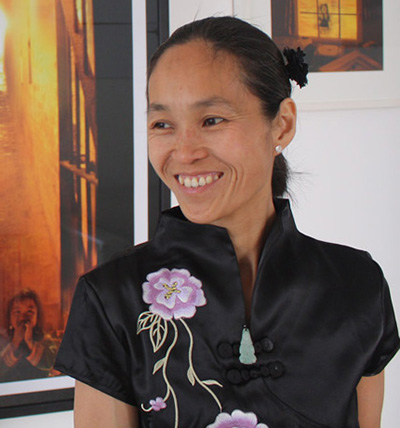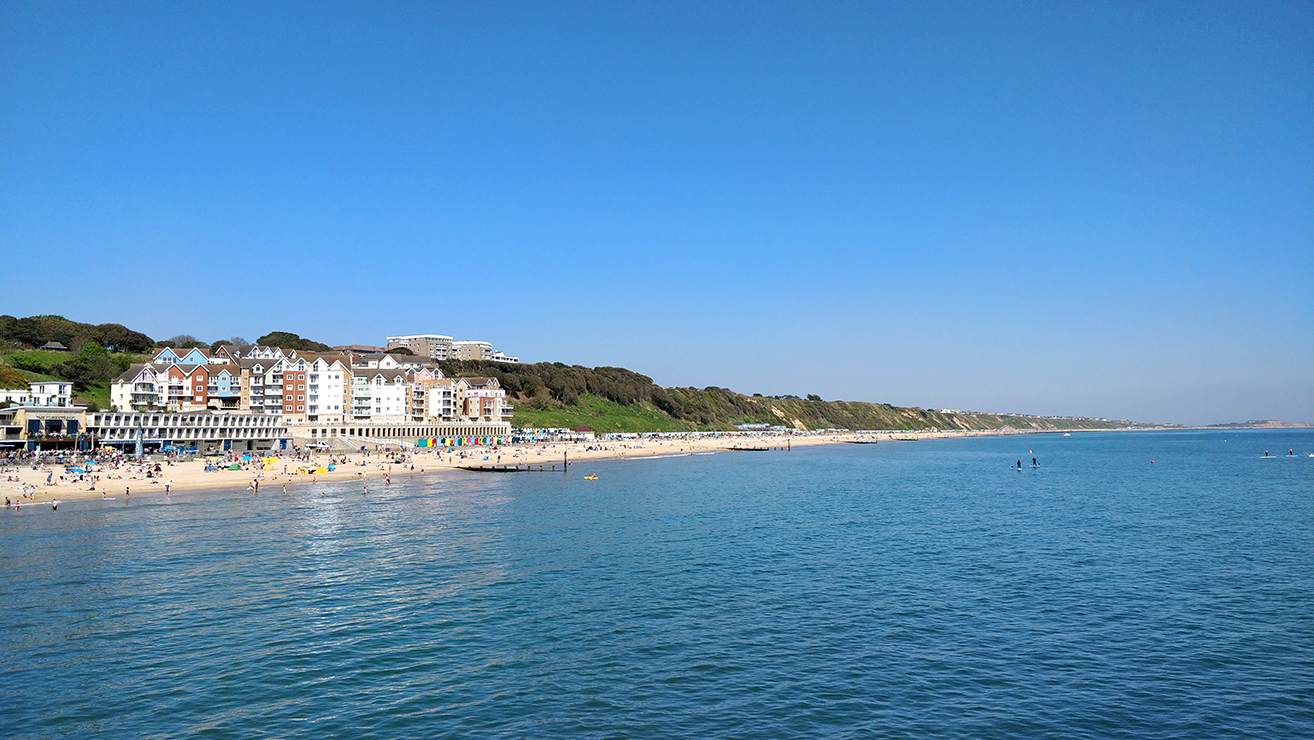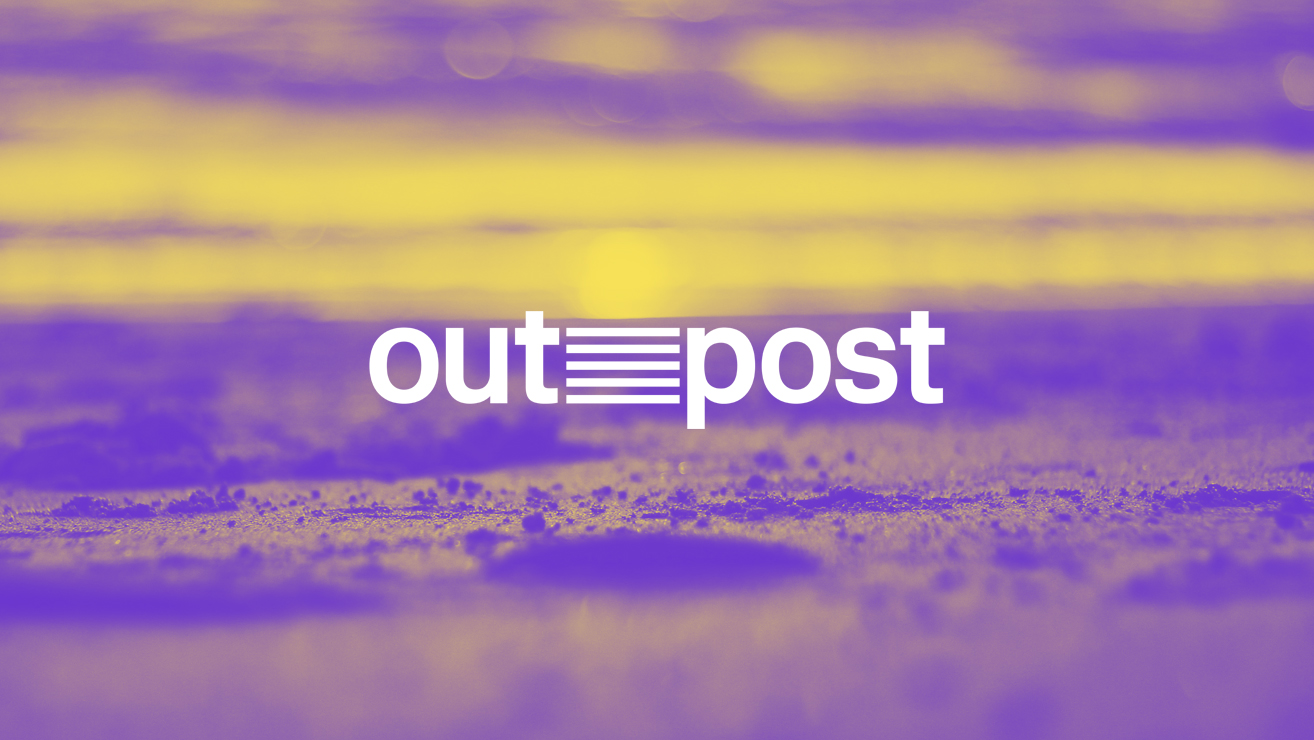Be the first to know — Get Outpost's monthly newsletter for news, tips and job opportunities.
Interviews
Digital Artist Hong Dam On Returning To VFX As A Parent
Hong talks to us about her returnship at Outpost as a Digital Matte Painter and the challenges of taking a career break to raise a family
Hi Hong. Can you talk me through your education and career?
I did a foundation course in college for printing and then from there I did a craft course at Herefordshire College of Art and Design (an HND). From the HND, the principal of Wolverhampton University, School of Art saw my work and offered me a Fine Art Sculpture degree course and offered a third year, also giving me a choice to go on on an exchange programme in the second year to New York. When I went out there, instead of doing sculpture, I learned Photoshop. That’s how I got into it back in 1994, so after that I didn’t want to be a fine artist really!
I then did a Computer Animation and Visualisation MA at Bournemouth University in 1996. I wanted to use that course to visualise sculpture in architectural contexts. The Mill was headhunting in Bournemouth then – so I started as a runner and became a technical assistant because of my background in Unix and programming for animation. Back then we didn’t have interfaces, so we were using CGAL, which was based on Pascal and C++ for simulation. Mill Film had just started and we were the first technical assistants there, working on Gladiator and Babe. Then I became a freelance digital artist/compositor, working for Jim Henson’s Creature Shop, MPC, ITV, Granada Television Network, all over really! I stopped for a little while and became an artist, doing my own art. Now I feel I can travel a bit more. I used to freelance in London, my husband already works in London as an Image Engineer so I’ve always kept in touch with the industry and events like IBC, BSC, video expos, just to see what’s going on really but never really thought of going back, as such, until now!
As you are working as a DMP Artist at Outpost, does that mean you want to explore more of Photoshop rather than work in compositing?
I used Photoshop more for conceptual and visualisation before and I really want to be a matte painter, rather than a compositor. You can use similar skills but they’re not totally the same. Compositing is a bit technical which is fine, as I come from a technical background. But what’s good from my background is that I had the technical skill, and started as a runner and a technical assistant; it’s given me quite a good foundation and a good understanding of how everything works. I was thinking of becoming an animator but then I realised I preferred to see the whole process than just seeing a tiny part of it! Potentially, I’d like to continue in matte painting!
What have you learned about matte painting while being here?
The perspective of things! The lighting is very different from being a compositor, as all the elements are given to you – all the plates and backgrounds – so you don’t really have to source anything as a compositor. You just blend and add smoke, for example. So sourcing things takes a lot of time, and knowing what to source for and how to look for them. And how to understand what can be done in 3D, what can be matte painted and what we can get away with. As a compositor, everything has to look real. With matte painting, you can get away with a bit more! Steve (Molloy, Creative Director) and Johan (Gay, Digital Matte Painter), are great to learn from. I also realised how different Photoshop is from Nuke because Nuke is 32-point EXR and floating point, whereas Photoshop is 8-bit!

Hong is looking to get into digital matte painting after the Film London Return to Work scheme
Why did you decide to apply for the returnship?
I wasn’t going to actually! My husband John was telling me about it and I thought ‘Ah I don’t know if I want to go back into the industry because you have to work such long hours.’ I know the culture in the industry and what it’s like, people expect you to stay late. It’s not necessarily that productive, but it’s frowned upon if you don’t stay late even if you come in early. When you’re freelancing, you just go in and have to run, learn the system and you don’t really have time to get used to it. This was especially true when I was using Flame for advertising work, because you’re working nights and there’s nobody there: you’re on your own so you have to know how everything works. If you don’t, you get stuck and if you’re a freelancer for the first time you just have to find a way to do it! You get three days to do an advert and that’s all you get!
So I was reluctant, but then a friend of mine told me about the Return To Work scheme from Film London. So I spoke to Film London and they asked if I fancied going to Bournemouth and I thought 'Oh it’s somewhere new, somewhere different'. It’s great because I don’t need to make a commitment with myself, but since I’ve been here, I feel like I want to continue for at least a year in this area, and maybe even more. I’m really enjoying it, really enjoying the learning side. I wasn’t sure whether I could actually go back full time, that’s why I was reluctant, but then my friend said she was doing it, and I thought I had nothing to lose so I thought I’d have a go!
How have you found Outpost in this regard?
It’s great that Outpost is a bit different. In general, I think the culture is pretty laid back. As long as you do your hours and you do your job then you can work more flexible hours. It’s a different attitude to the rest of the industry, it’s a bit more like a big family here. Steve comes in at 8 so he can leave at 4.30 and that’s fine as he’s done his hours. I prefer that personally, coming in early and leaving early, as it helps with family life! I’ve done late hours here by choice. I wanted to learn! It’s just one way of learning much faster.
From our previous conversations, I know that your daughters are more grown up now, so does that make it easier for you to step away and do things like this Return to Work scheme?
Yeah but ideally I’d like to do a three- or four-day week max, and then after six months, to switch to full time. When you are a parent, you need that transition and your kids need that transition too. They’re really good kids actually, they cook for each other and wash up. I get back and everything’s done! We have a blackboard for our chores, too. Each day we do washing up and each of us have a different chore. Jessica, my eldest would do the hoovering, Amelia would clean the bathroom and I’d clean the kitchen. If they’re given a chore they do it. I’ve always told them it’s a shared house, it’s not just my house so we all have a responsibility to keep it clean! The other day though, Amelia, my 14 year old said, "Mum, I miss you" and "Mum, Idon’t know how to use the washing machine!" If I’m not there for example, and her PE stuff needs washing then there’s no one to do it. So I showed her how to use it! It’s quite nice to be missed though! It’s good for all of us to be a bit more independent without me, and it helps them with sister bonding as they have to look after each other.
In general it works well, but if the UK government could have more help to get parents back to work that would make things much better. Childcare is so expensive, especially when you have two kids, so you may end up thinking 'what’s the point' unless you have extended family to help take care of them! Even if women want to go back to work, they don’t really get the opportunity and they also feel guilty about it! I did freelance for quite a few years, but I had my mother looking after the kids, and then you feel guilty and you think ‘Ah I need to take back control of my kids now!’ The problem is you can’t do part-time. I didn’t want to stop but it was the circumstances – if your partner is already working full time in London five days a week, and he has to get up at 5am in the morning to commute and he doesn’t get back until 7.30pm, then you have to make a decision. As the girls have gotten older, it’s gotten easier.
What other challenges have you come up against in your break and in coming back to the industry?
I think the main thing is the long hours; the industry offers a lot of freelancing. As a freelancer, when you go anywhere, people judge you and how fast you can get up to speed and what kind of hours you can work. For me, I can’t compete with the single artists, who live nearer to their work and don’t have kids to go back to. I’m always constantly wearing two hats so I can’t stay if the project overruns. For me to come back to work, I’m happy to come back to assist someone, say collecting, organising or archiving textures etc for a library to be built up of things or transferring files – things to help the systems move. I’m not as ambitious as I was, for now, until things are running a bit more smoothly for a good work/life balance. For me, family is the most important thing. Work used to be, but if our society doesn’t place enough emphasis on family, then that can be a problem for children. It’s difficult for companies too, as our industry doesn’t offer women or carers a bit more of a work/life balance, especially in the film VFX industry I think.
What could the industry do?
I think they could offer more job shares, if they are able to: having two people apply and having them work together. I think women are quite good at doing that. I used to think that I wanted to start a company myself, and help talented women get work. We’ve got the talent but no outlet. It doesn’t give you confidence because if you need to go back to work after taking a break, it can be harder to get back in because a lot of things can change. But if you keep at it part time then you’ve still got your foot in the industry. When you kids are older, then you can give it more time, and be more flexible with it. With someone like Leanne [Loughran, Talent Manager], she works part-time which is great! There’s less strain on the family.
I think a lot of women have younger children than me and I really feel for them because I don’t know how they’re going to work in the industry. Unless companies offer them a part-time permanent position, so that they know the hours to come in and the hours they’ll finish, it'll just be impossible.
A friend of mine was looking to go back into work a couple of years ago as a technical assistant, and wanted to do that for a three-day week but it didn’t quite work as they wanted someone full time. It was also a quite junior role, so sometimes it’s better to be a freelancer, but if you have a family then you can't afford the uncertainty!
Would you recommend the returnship?
Yes! Film London are so passionate that it rubs off on you too! As well as paid-for accommodation, and paid day rates as a freelancer, you get three training days with guest speakers and buffet. You get to bond with eight other women, and it helps them get a taste of the industry currently and see if it’s for them. It’s a good stepping stone to getting back into their careers.
Initially when I applied, I wanted to be a matte painter, and I thought I’m just throwing away my chances of being selected because my CV is all compositing – Nuke, Shake and Flame, but then I got accepted! People applying need to not be afraid to ask for the possibility to train for something else now. It’s worth asking!






